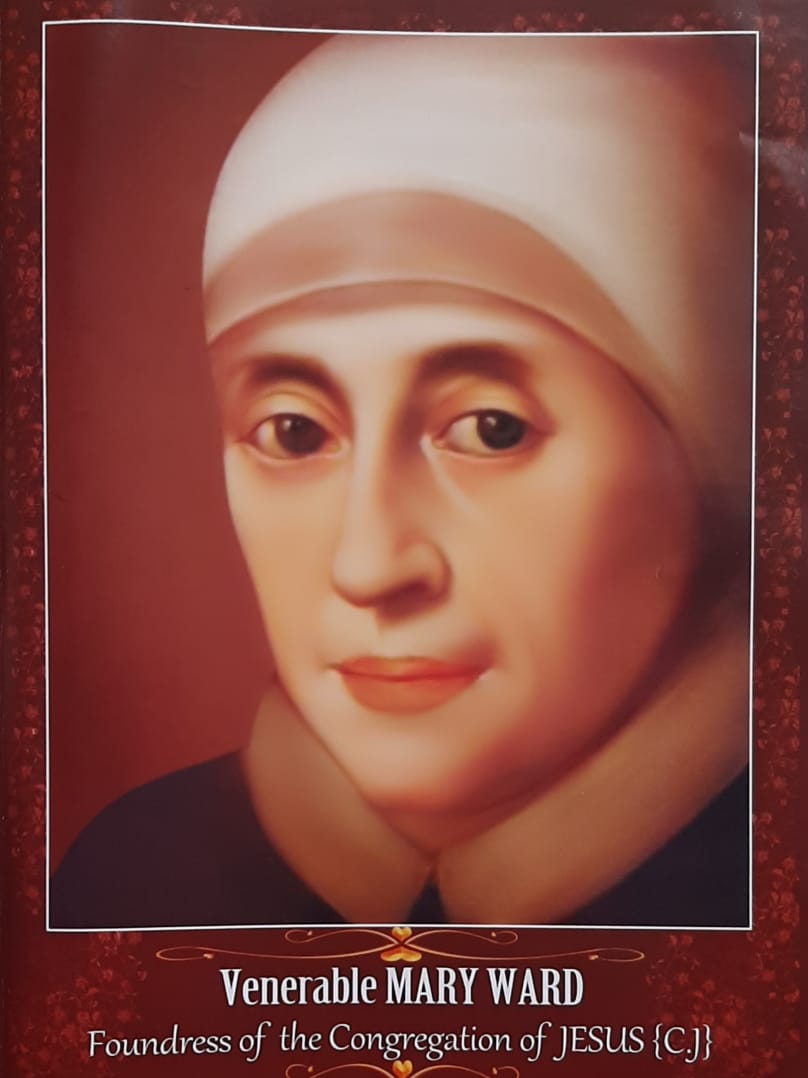
MARY WARD’S STORY
Born into a Yorkshire Catholic recusant family in 1585 Mary Ward was remarkable for being one of the first women to believe that women should be actively involved in the apostolic life of the Catholic Church. However, initially she opted for the strictest form of contemplative religious life determined to give herself totally to God. For this she went to St. Omer in Flanders where she joined the Poor Clare Order as a lay sister.
When God revealed to her that a life of prayer and obscurity behind a convent wall was not what she was called to, she returned to London in 1609. Here, with a group of like-minded young women, she engaged in apostolic work disregarding the strict laws against Catholics at the time. Later that same year Mary realised that God was calling her to some form of religious life “more to His glory”. To discern what that might be, she left London for Flanders with her young companions and founded her first house at St Omer.
In 1611, whilst at prayer, enlightenment came to her and she heard clearly the words: ‘Take the same of the Society’, by which she understood the ‘Society of Jesus’ founded by St Ignatius of Loyola. The rest of her life was spent in developing a congregation of religious women on the Ignatian model. For this she needed, and repeatedly failed to gain, Papal approval.
Three times she and her companions walked to Rome from Flanders, over the Alps, twice to try to gain this approval and the third time as a prisoner of the Inquisition following the suppression of her congregation by Pope Urban VIII in 1631. During this period she founded houses and schools in St. Omer, Liège, Trier, Cologne, Rome, Perugia, Naples, Munich, Vienna and Pressburg (Bratislava), often at the request of the local rulers and bishops, but Papal approval eluded her.
To the Papal authorities a congregation of apostolic, unenclosed, self-governing women was unthinkable at a time when the reforms of the Council of Trent had forbidden new religious congregations and confined religious women to enclosure. Had she been prepared to compromise and accept a form of enclosure Mary might have obtained Papal approval. However, she would not compromise and preferred to face the dissolution of her congregation, imprisonment, the imputation of heresy, and disgrace rather than abandon her conviction that “there is no such difference between men and women that women may not do great things … and I hope in God it will be seen, that women in time to come will do much.”

